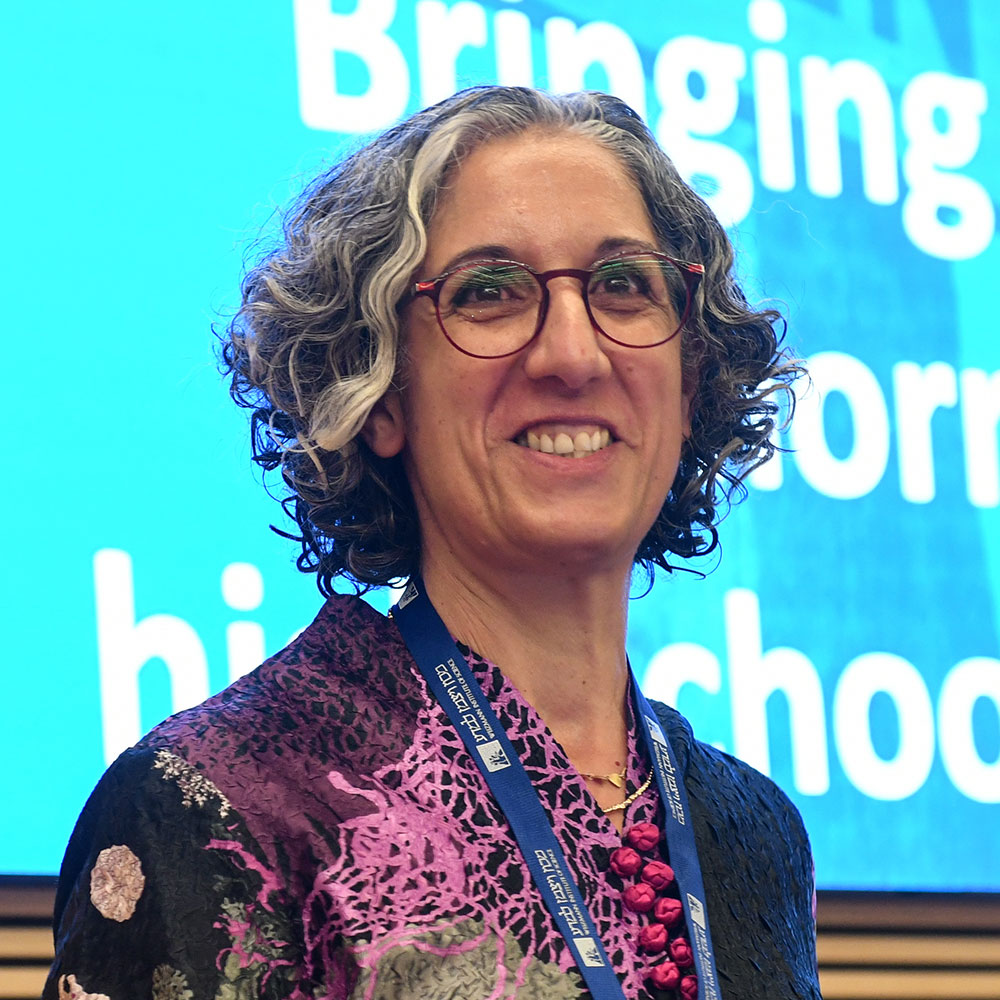Talk Title: Introducing contemporary research topics into school science programs
http://www.weizmann.ac.il/st/blonder/
Dr. Ron Blonder is a Professor in the Department of Science Teaching at the Weizmann Institute of Science in Israel. She is the head of the Chemistry Group and the head of the Rothschild-Weizmann Master’s Program for Excellence in Mathematics and Science Teaching. Prof. Blonder earned her BSc in Chemistry, with distinction, from the Hebrew University of Jerusalem in 1993. She then completed her doctoral studies in Chemistry at The Hebrew University of Jerusalem.
Her research focuses on chemistry teachers’ professional development in the context of contemporary science using innovative technological tools and environments. She has published over 100 peer-reviewed and invited papers and book chapters in which she has explored chemistry teachers’ self-efficacy beliefs and knowledge development when teachers learn contemporary research in chemistry (mainly nanochemistry) and when they incorporate technological tools in their chemistry teaching. She has also investigated differentiated instruction in heterogeneous chemistry classes with and without the aid of technology to promote personalization in chemistry teaching. Dr. Blonder has applied the results of her educational research to chemistry teachers’ professional development.
Abstract
Introducing contemporary research topics into school science programs: Looking for the benefits while considering the challenges
Ron Blonder
Weizmann Institute of Science, Rehovot, Israel
Chemistry is continually being developed through research in academia, research institutions, and industry. However, school chemistry and the curricular contents are hardly affected by the development of chemistry. This gap does not provide an opportunity to expose school students to the beauty and relevance of contemporary chemistry research. Students are unaware of how chemistry contributes to addressing the global challenges; they are not exposed to the nature of modern science and to actual scientists who conduct chemistry research today, and who are more likely to be perceived as models for the students [1].
Changing the school curriculum usually takes a long time, and many informal activities and outreach programs have been developed to communicate contemporary research to school students [2]. However, a deeper approach that does not require curricular changes is to focus on chemistry teachers’ professional development (PD) and to update and expand their knowledge by learning and experiencing contemporary chemistry [3, 4]
In my presentation, I will reflect on the different approaches of introducing contemporary research topics into school science programs and present current results on the impact on teachers and students outcomes in terms of their motivation to become scientists, their understanding the nature of science and the academic emotions that mediate these outcomes [5].
References:
1. Blonder, R., Introducing contemporary research topics into school science programs: The example of nanotechnology, in Long-term research and development in science education: What have we learned?, A. Hofstein, et al., Editors. 2021, Brill.
2. Tirre, F., et al., Design of a student lab program for nanoscience and technology – an intervention study on students’ perceptions of the Nature of Science, the Nature of Scientists and the Nature of Scientific Inquiry. Research in Science & Technological Education, 2019. 37(4): p. 393-418.
3. Blonder, R., The story of nanomaterials in modern technology: An advanced course for chemistry teachers. Journal of Chemical Education, 2011. 88: p. 49-52.
4. Blonder, R., et al., Nanoeducation: Zooming into teacher professional development programs in nanotechnology in four European countries, in Topics and trends in current science education, C. Bruguière, A. Tiberghien, and P. Clément, Editors. 2014, Springer: Pintforce, the Netherlands. p. 159-174.
5. Yonai, E. and R. Blonder, Uncovering the Emotional Aspect of Inquiry Practices in a Remote SEM Environment and the Development of a Designated Questionnaire. Journal of Chemical Education, 2022. 99(12): p. 3932-3945.

